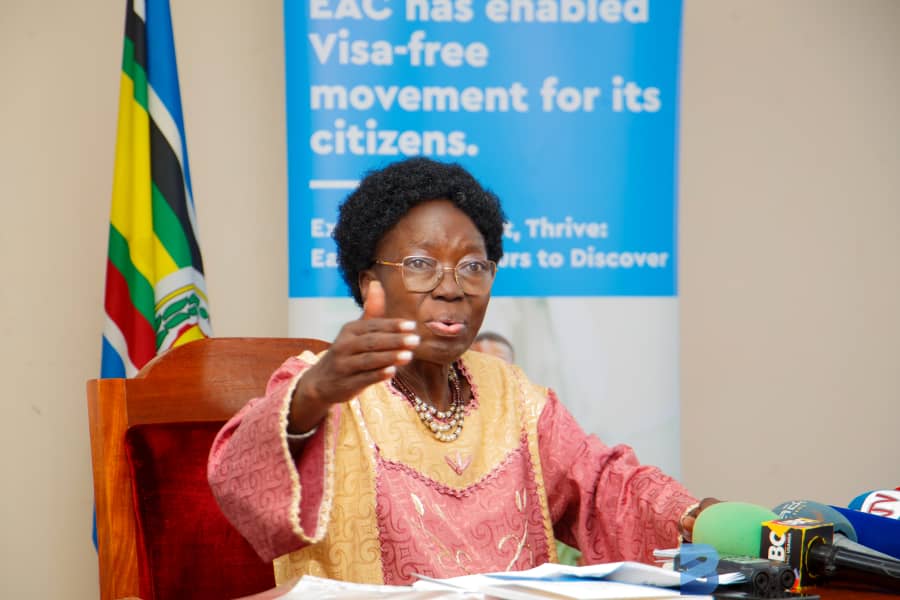
 Tiger FM
Tiger FM

 Tiger FM
Tiger FM
5 March 2025, 10:59 am
By Ronald Ssemagonja
The Minister of East African Community Affairs (EAC), Hon. Rebecca Kadaga, has updated the country on the outcomes of recent EAC summits.
“On 29 January 2025, the EAC Heads of State convened virtually and made several decisions. Discussions focused on developments, particularly the deteriorating security situation in eastern Democratic Republic of Congo (DRC), which has led to loss of life, a humanitarian crisis, and widespread suffering, especially among women and children,” she said.

The summit extended its condolences to the families of those affected by the recent developments in eastern DRC and wished a swift recovery to those injured. Concerns were raised about the escalating crisis, particularly attacks on diplomatic missions, embassies, and staff based in Kinshasa. Consequently, the DRC government was urged to ensure the protection of diplomatic missions, lives, and property.
Parties to the conflicts in eastern DRC were called upon to cease hostilities, observe an immediate and unconditional ceasefire, and facilitate humanitarian access to affected populations. However, this has yet to be fully achieved.
According to the minister, there is a proposal to enforce a human rights protocol, but it has not yet been implemented. “At some stage, when M23 was fighting, our president asked them to stop so that he could engage in discussions with the governments in the DRC, but we are still in talks,” Kadaga said.
Regarding the issue of funding for the EAC’s operations, the minister noted that some member states are failing to meet their financial obligations. “Funding for the EAC is really a problem because four states are carrying the burden of eight, which is severely affecting our work. Everything is being constrained due to financial shortfalls, but we are trying to persuade them,” she explained.
“We had proposed sanctions against countries that are not contributing, but when we attended the meeting, they did not agree to the decision because they were also present. This has made it difficult, but I hope that, eventually, we shall find a solution,” she added.
On the matter of a common currency, the minister stated that discussions are still ongoing and expressed concern over the hardships people face. “When I was appointed, the first thing I did was secure land for the East African Central Bank. The police allocated me land in Naguru. However, when the advertisement was issued for which country would host the central bank, almost all countries applied. I believe Rwanda later withdrew, but Uganda, Burundi, Kenya, and Tanzania remained in contention. During one of our meetings, Tanzania was announced as the host. We disagreed because they already host several EAC institutions, including the headquarters and the East African Legislative Assembly (EALA). We argued that they could not also have the bank, as Uganda is equally interested. We are still negotiating this matter, and I remain concerned about the suffering our people endure due to the lack of a common currency,” she said.
The EAC is a regional intergovernmental organisation comprising the Republics of Burundi, Rwanda, Kenya, South Sudan, Uganda, Somalia, Tanzania, and the Democratic Republic of Congo. Its headquarters are in Arusha, Tanzania. The current Chairperson of the EAC is President William Ruto of Kenya.